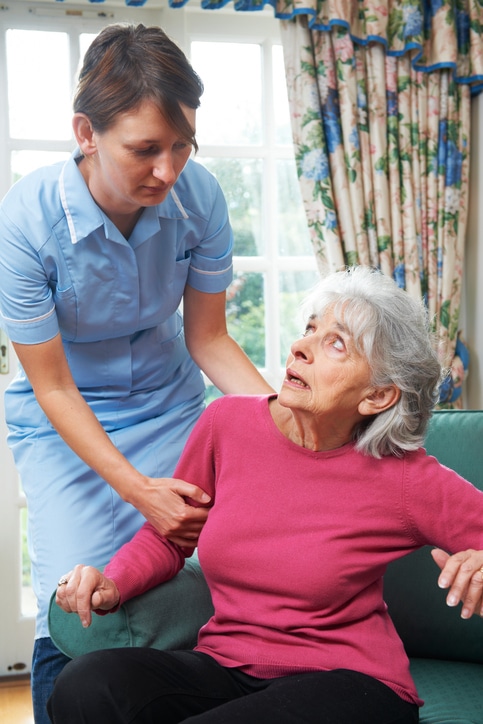An elder abuse attorney can help your loved one obtain justice if they have suffered abuse.
In the United States, we have been fortunate to live in an era of medical advances, allowing many people to live into their 80’s and beyond. However, with an increased life expectancy often comes a dilemma: how do we care for our loved ones when they are no longer able to care for themselves? For many of us, the answer comes in the form of assisted living communities, long-term care facilities and nursing homes.
These types of facilities can be an amazing resource for anyone struggling to care for a family member, friend or other loved one who can no longer safely live independently. But unfortunately, not every nursing home provides top-notch care — and some nursing home staff even abuse their patients.
Nursing home abuse can come in many different forms, from physical to emotional to sexual or even financial abuse. It cannot always be prevented, although the risk of nursing home abuse can be reduced by doing things such as making frequent, unannounced visits and being vigilant to signs of abuse. If you do suspect that your loved one is being abused, you can take the following steps to protect him or her from further abuse and get help.
First, familiarize yourself with the signs of elder abuse. It can be difficult to spot the signs of abuse, but there are some common symptoms that may indicate that your loved one is not being taken care of properly. This may include sudden weight loss, bed sores or problems with medication that may be signs of neglect. If staff will not let you see your loved one without notice, that may be a sign of abuse as well. If you monitor your loved one’s finances, any unusual or large transactions could be an indication that there has been financial abuse. Finally, any unexplained injury or a change in behavior could be a sign of abuse.
Second, if you believe that your family member or friend is in an emergent situation, do not wait. Call 911 immediately to be sure that he or she gets treatment as soon as possible. In addition, this will ensure that law enforcement will see the situation that led you to believe that your loved one has been a victim of nursing home abuse.
Third, gather information to support your belief that your loved one has been the victim of elder abuse. This may include taking pictures of injuries or conditions that have caused you concern, gathering medical records, or talking to potential witnesses about these issues. You may also want to file a complaint with the state agency in charge of regulating nursing homes, or speaking to an experienced elder abuse attorney.
Fourth, remove your loved one if you believe that your concerns are substantiated and the nursing home does not take action to address the issue. Before filing a report or a claim, the priority should be ensuring that your loved one is somewhere safe to prevent retaliation. Tour other facilities in the area, and talk to friends, neighbors and coworkers about their experiences with these nursing homes.
Fifth, talk to an experienced elder abuse attorney about the possibility about filing a lawsuit to seek compensation for the abuse suffered by your loved one. A knowledgable elder abuse attorney can help you decide if filing a claim is the best course of action for your family member or friend, and can work with you to decide on your next steps.
At PLBH, our attorneys are dedicated to helping victims of elder abuse, including those who have been abused in nursing homes. We offer free initial consultations, and may be able to represent victims of nursing home abuse on a contingency fee basis. Contact our office today at (800) 435-7542 or info@plblaw.com to schedule an appointment and learn more about how we can help you.

